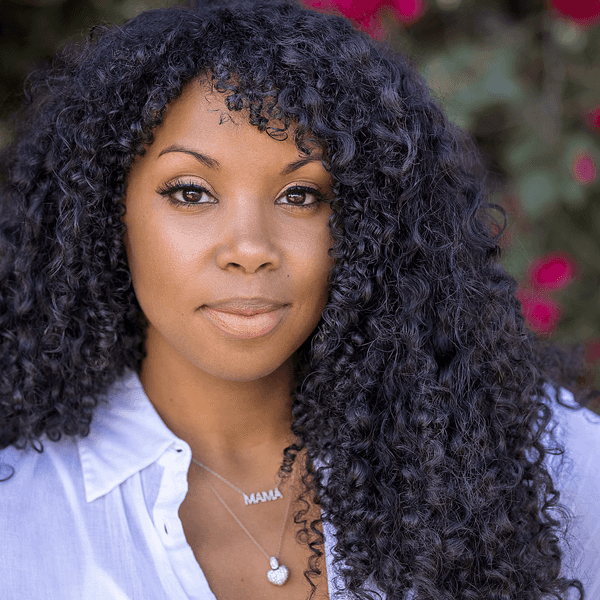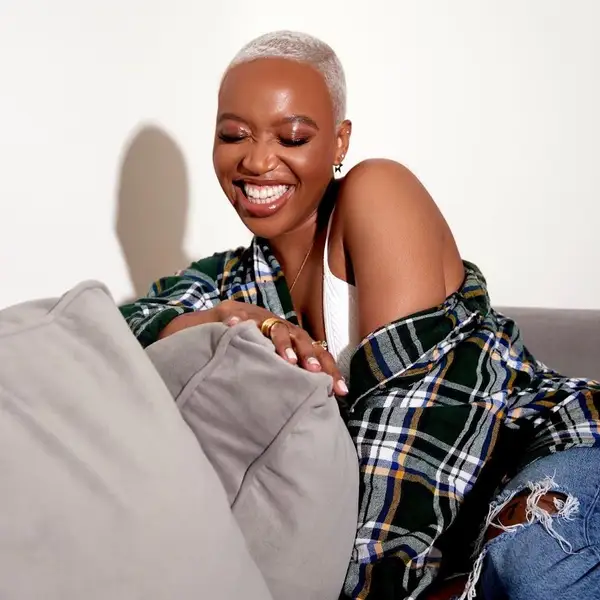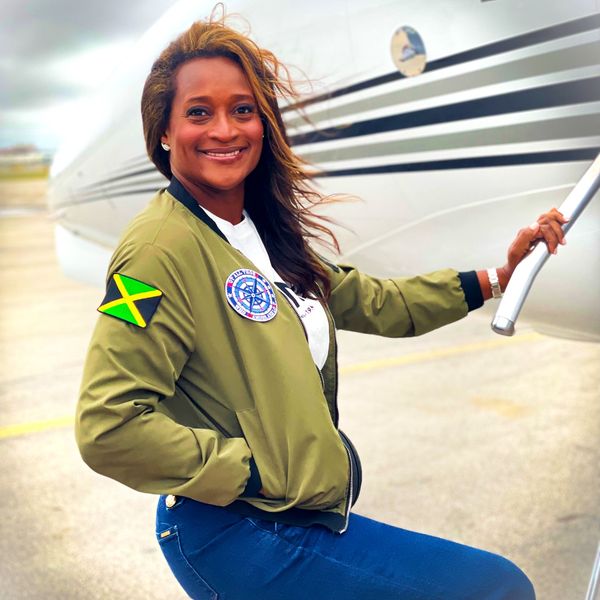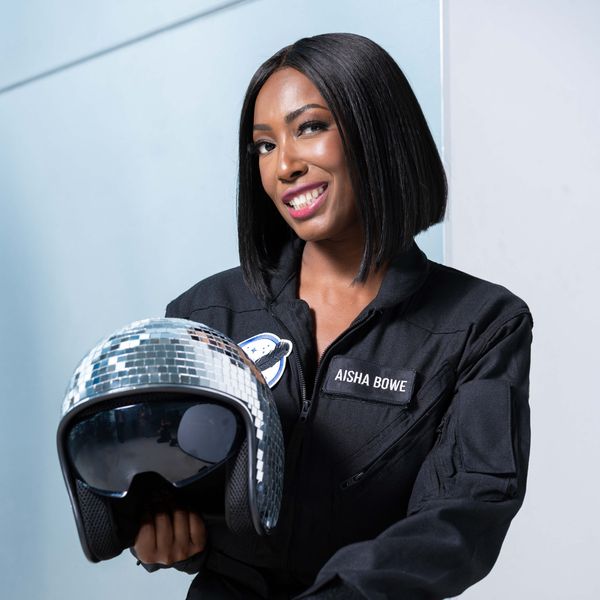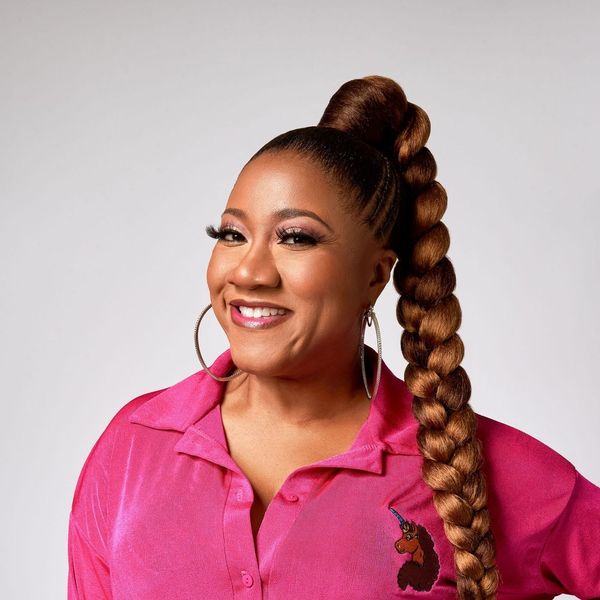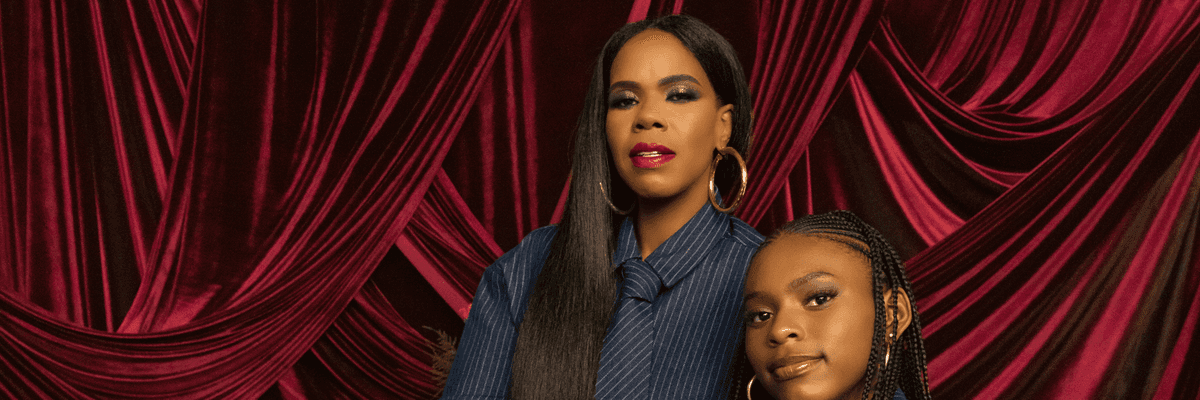It’s the time of year that calls for deep reflection and even deeper self-inventory — and Codie Elaine Oliver, co-creator of the Black Love multi-verse, is feeling the effects, “I've been in this really deep place lately, so forgive me.” It’s a place that many of us have found ourselves in, after a pivot, a moment of self-discovery, or simply in the quiet moments of our day-to-day routines. It’s the light bulb that illuminates in our heart, almost blindingly, to reveal inward truths, “I've learned to recognize that I am tender and require tenderness from those in my life. I've learned to own it as opposed to [trying to] fit into the box of having thicker skin.”
For Codie, whose personal and work life are so intimately intertwined, these moments produce profound awareness, with lessons learned and applied both on and off the camera. In many ways, the Black Love docuseries is an extension of Codie’s lived experiences. The show’s honest portrayal of married life, the best and worst of it, was birthed out of her curiosity of “how to make it work,” stemming from her parent’s divorce when she was just 11 years old.
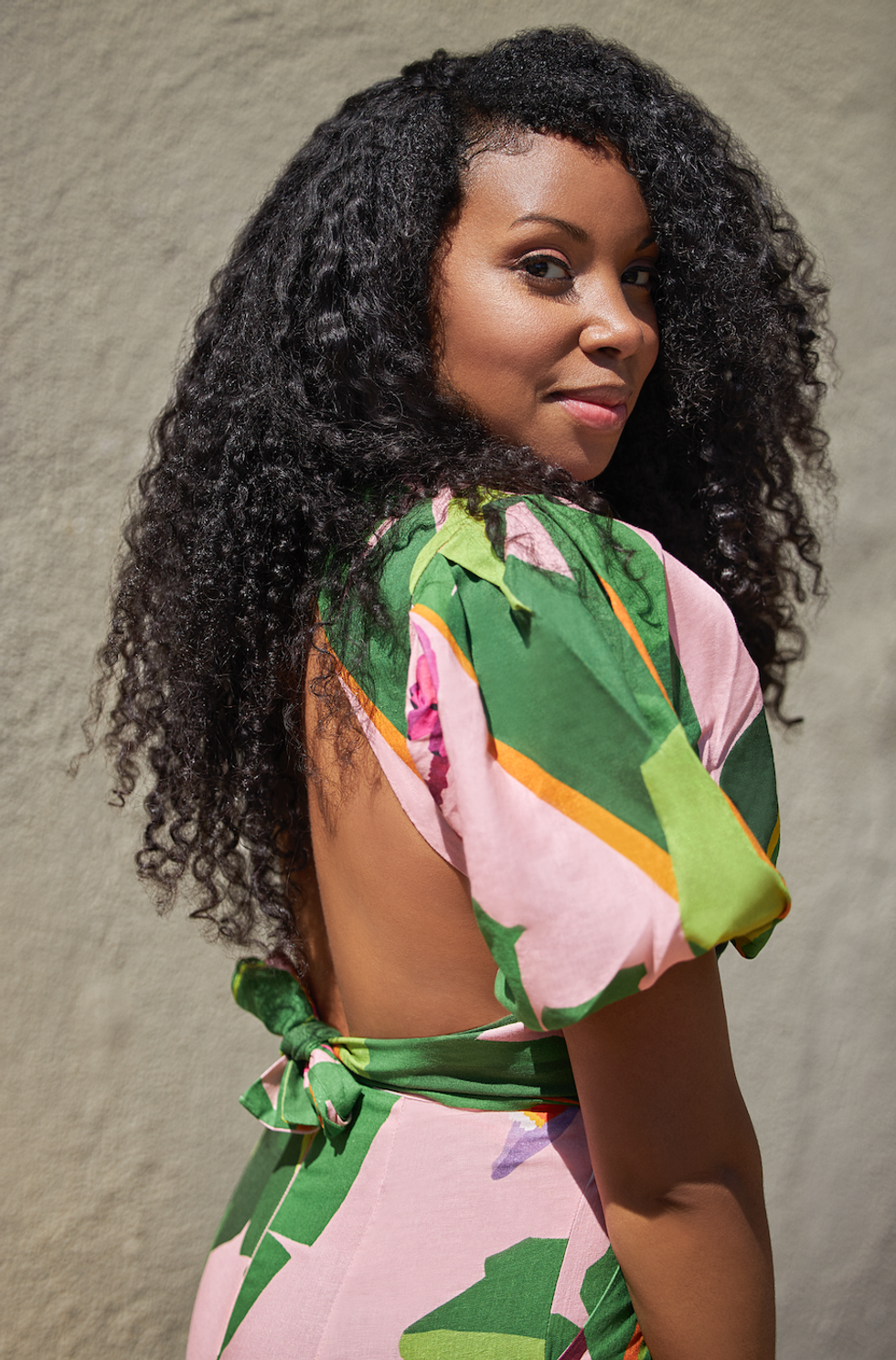
Photo Credit: Tommy Oliver
Into adulthood, Codie’s earnest allurement for all things love and relationships began to merge with her natural storytelling abilities. Crossed between opposing narratives of a “Black marriage crisis” and her own desires for partnership, Codie began to explore the possibility of her own Black love story, “People tell you the more degrees a Black woman has, the less likely you are to get married. I lived in LA and they tell you you can't meet anybody there,” she continues thoughtfully, “I felt like I could either accept that [marriage] was not going to happen or I could immerse myself in how possible it was.”
Instead of conceding to these disparaging narratives, Codie decided to tell a new story, thus creating the Black Love docuseries.
Cut to now, Codie, alongside her husband and co-creator, Tommy Oliver, have highlighted the journeys of over 250 couples through their docuseries, social platforms, and live events. Together, the couple is able to play off each other’s strengths; with Tommy administering the structure and Codie applying her nurturing essence to make space for transparent discourse to be exchanged and handled with care, “I love the behind the scenes, I love to bring people together. My personality makes it so that I bring authenticity and comfort out of others.”
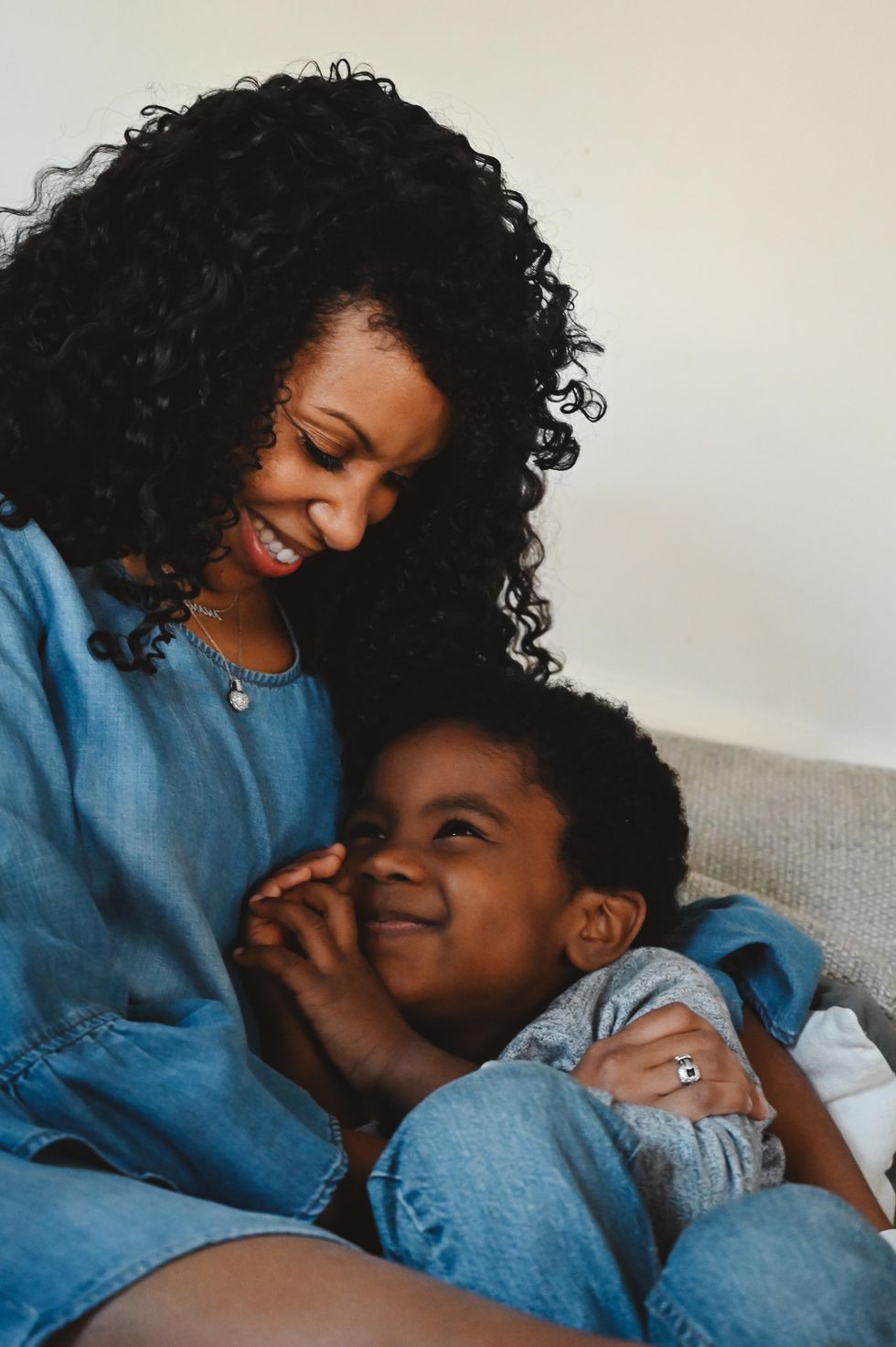
Photo Credit: Monkeys and Peas Photography
It’s this comfort and authenticity that has, in itself, restored the hope and possibility for love in countless hearts. This points to a legacy that has not only beared fruit in her lifetime but has also planted seeds in her children to carry forward. Or as Codie shares, “the editor of Black Love, Christopher Scott Shapiro, always says, ‘Yes! Keep raising those boys with this trauma-free Blackness.’”
Knowing that you had something special with your docuseries, what were the initial steps to get in the right rooms to pitch your series to networks and eventually OWN Network?
Codie Elaine Oliver: I would say the confidence came from the fact that I just knew that I needed it, I knew my friends needed it, and I knew that I'd never seen it before. I knew there was a hole right in the “market.” That's what kept me going.
When my husband and I started this project, it was meant to be a documentary. So we went the traditional route with an independent documentary and our expectation was to raise a little money or crowdfund, to go to film festivals or maybe in theaters. But it was an independent job and there's an end date or shelf life. When we pivoted from the traditional route, we were met with a lot of pushback. A lot of white [executives] were asking questions like, is that it? What else? People had a lot of questions about traditional documentary storytelling and what we really needed, but we felt like hearing from the couple would satisfy the goal.
Tommy and I decided to make it as “foolproof” as possible; an "inevitable yes" as he would put it. We shot for two years, from 2014 to 2016, edited the first episode, wrote a treatment for the entire season, and did a sizzle for the full season. That gave potential buyers a really clear picture of what this was, the structure, what it felt like. That's how we got around the traditional structure because it's unlikely that we would have gotten it made off of a pitch and no actual video.
What have you learned overall about turning your pain points into purpose?
For me, leaning into the big questions that I've had in my life, my uncertainties, and the things that made me uncomfortable, allowed me to learn about myself and the people around me. A friend of mine recently said, “Trauma is not what happens to you, it's what happens within you.” When I think about people's trauma, I think most of us have had scenarios that may seem small to someone else, but what matters is what happens within us. When I’ve leaned into those experiences, to ask myself questions and seek answers, it’s helped me be a better person, professional, wife, and mother. And my hope is that leaning into those uncomfortable places helps others as well.
"When I’ve leaned into those experiences, to ask myself questions and seek answers, it’s helped me be a better person, professional, wife, and mother. And my hope is that leaning into those uncomfortable places helps others as well."
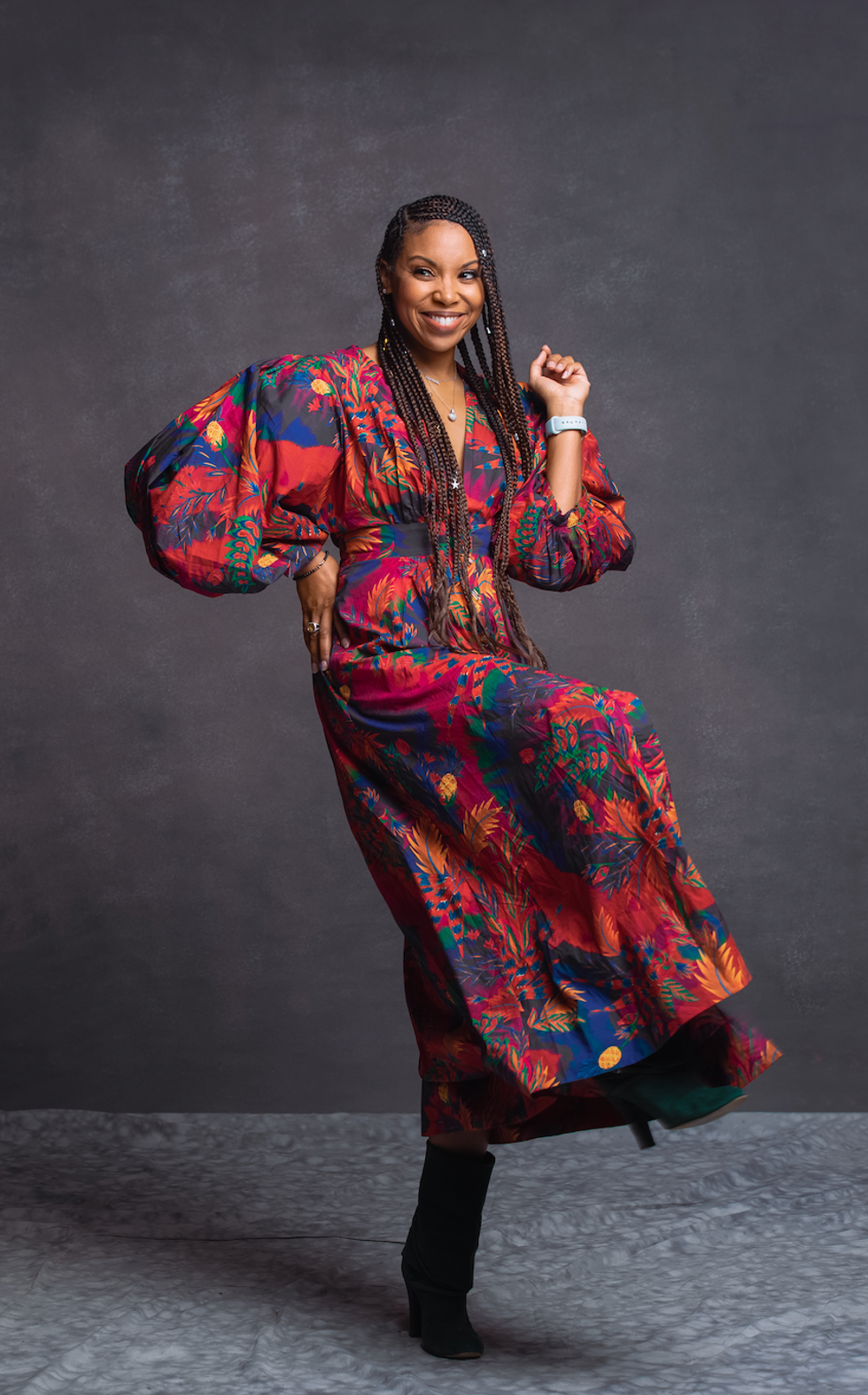
Photo Credit: James Anthony
They say relationships are like holding a mirror up to yourself. What have you personally learned about yourself through the work that you do along with co-creating with your husband?
Oh, so many things. I'm learning about myself every day. I'm learning about partnership and marriage. I'm learning about what I was always dying to know: which is what it takes to make a marriage work — and I'm learning that through our couples. The show is more than a show for us. Every time we sit down and interview a couple, it's not like we're shooting a TV show, that's not what it feels like in the room. Every time we spend time with a couple, it is an opportunity for us to learn and grow.
For me, the Black Love docu-series is this exciting and sometimes painful therapy. I'm constantly learning, but my greatest lessons have come in the form of seeking balance and peace in my life, amid the blessing of having a business that is my purpose and my passion and having a family.
You mentioned early in our conversation that you’re in a “deep place” right now. What has this time taught you about yourself?
I’ve learned that I have to set boundaries to protect my mental health. Sometimes those boundaries come in the form of difficult business decisions, canceling something, delegating things that I may be afraid to delegate.
I've also learned that I need to treat my mind and body better and speak to them more positively; feed them better, both in terms of literal food and through meditation and movement. These things are key to my personal and professional success. Too often we run all of those things into the ground: our bodies, our minds, our boundaries, our softness, to try to check boxes and meet deadlines. But it's very important to consider when and why to actually sacrifice yourself for something.
“Too often we run all of those things into the ground: our bodies, our minds, our boundaries, our softness, to try to check boxes and meet deadlines. But it's very important to consider when and why to actually sacrifice yourself for something.”
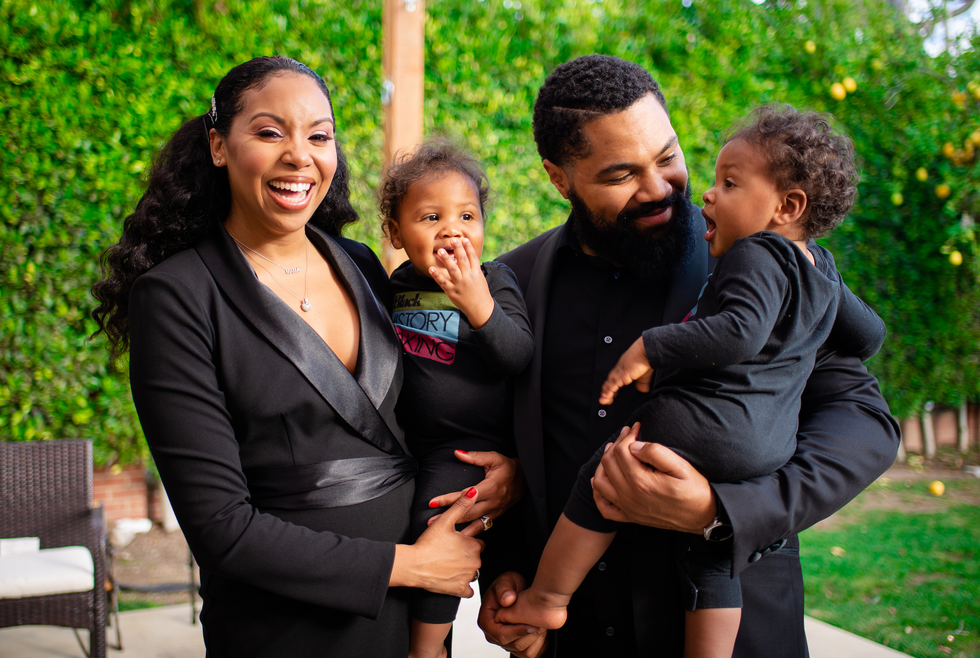
Photo Credit: Breanna Jones
What is your perspective on carrying down generational wealth through love? To your children, tribe, and community?
My biggest goal and passion — and the place where I get simultaneously excited and emotional, is passing that radical self-love to my children in every way. How can I make sure they love themselves so much so that no one can tell them they aren't good enough or attractive enough. I want them to laugh at anyone who thinks that they are not beautiful. That's one of the places where I think we have the greatest responsibility as people because our kids are looking at us. And not just the ones that come out of us; the kids are looking at us. That's where we have the responsibility to really pour into them.
The outside world is going to do what the outside world does, but how can we inflict the least amount of trauma onto our children? Where they simply love each other, and themselves deeply.
You were a 20-something navigating your career and balancing your love life all at the same time. What advice would you give to 20- and 30-something Black women who desire to have a career and family?
I would want to do away with the words, “have it all.” Or at least encourage everyone to define that for themselves and to listen to themselves as they grow and change because you don't really know what “having it all” means or what it looks like until you're juggling it all. I could not fathom what those words meant 10, 15, 20 years ago, when I was still at home, looking at grown-ups, like, “Oh, she has it all right.”
Thankfully, for our generation and those coming after me, we've become more inquisitive. We've become more thoughtful and transparent. We seek authentic candor from one another and from our parents and grandparents, we're asking questions. I hope that the notion of having it all becomes something that we discuss and question earlier; that's my biggest advice.
“Because having it all doesn't mean that I'm happy. Looking at these women that we look up to, what did they sacrifice? What is their self-care ritual? Those are the things I think about. If I can't take a 15-minute walk every day, if I can't feed myself and my soul the way that I deserve, it doesn't matter.”
I wish I could quote Tai Beauchamp, she shared something to the effect of, “It changes depending on the season, but the goal is to be able to do things that you love and still have like peace within yourself,” and that is pretty much the definition that I've adopted. Because having it all doesn't mean that I'm happy. Looking at these women that we look up to, what did they sacrifice? What is their self-care ritual? Does it exist? Those are the things I think about.
If I can't take a 15-minute walk every day, if I can't feed myself and my soul the way that I deserve, it doesn't matter.
Find out more about Codie Elaine Oliver via her Instagram and podcast. And for all things Black Love-related, follow the platform on YouTube and Instagram.
Featured image courtesy of Codie Elaine Oliver



